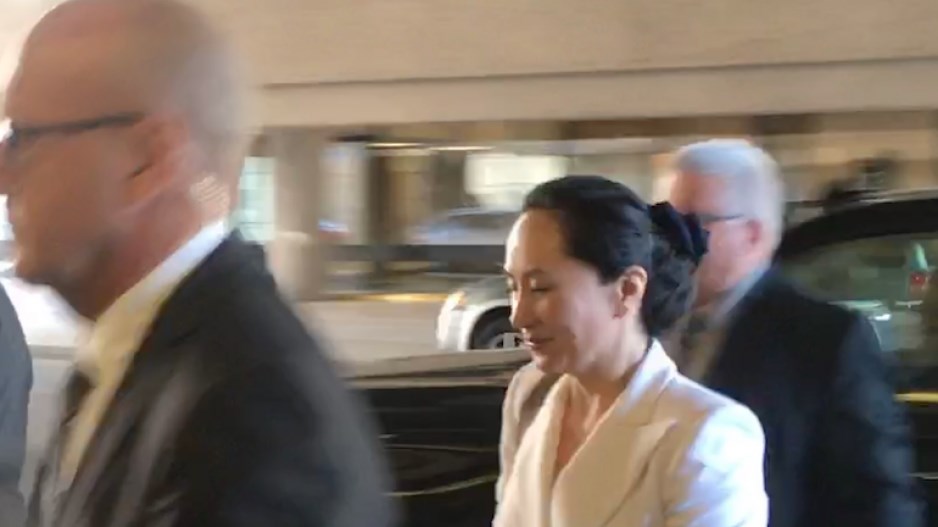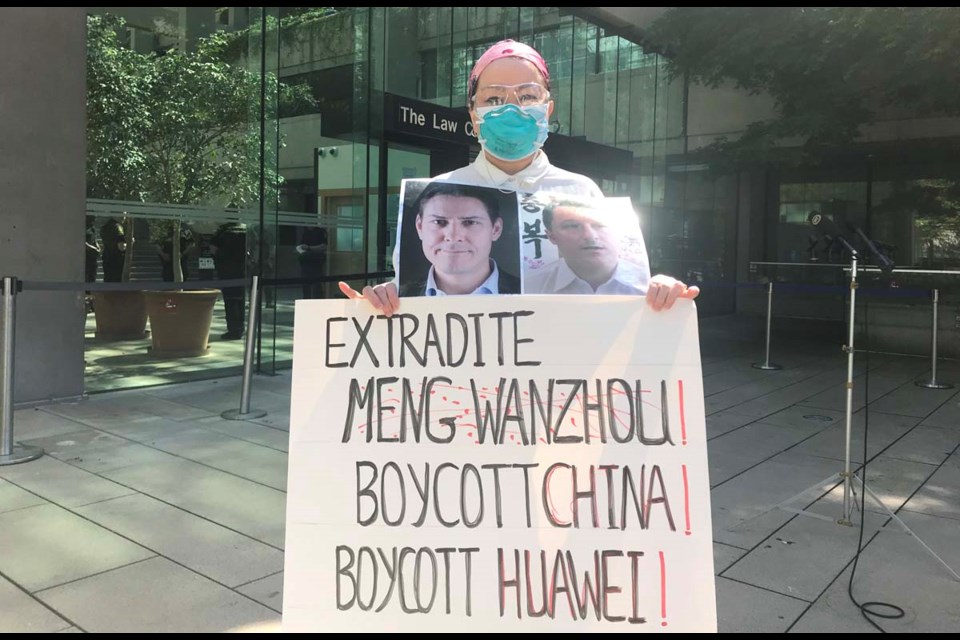The COVID-19 pandemic didn’t stop Meng Wanzhou’s detractors and supporters from showing up outside the B.C. Supreme Court on Wednesday morning.
Minutes before the court decided that the Huawei CFO’s U.S. extradition hearing process would be allowed to proceed, both pro-democracy and Meng supporters waved signs to express their opinions.
The judge presiding over the case ruled that Crown prosecutors met the requirement of double criminality, meaning that the conduct Meng is accused of in the U.S. – which includes fraud, money laundering and violating U.S. trade sanctions against Iran – has been deemed as an arrestable offence had it happened in Canada.
Paine Hu - who made signs with his friends that read “free Meng” - emigrated from China to Canada more than 20 years ago.
Hu said he felt regret after hearing the news that Meng couldn’t be set free this time.
“I hope she can (go) back home as soon as possible. And hopefully, the relationship between Canada and China won’t be affected by today’s court ruling,” said Hu.
James Wu, another member of the “free Meng group,” is also worried said Meng’s protracted court case might pose “harm” to trade and economic relations between Canada and China.
“However, these setbacks might be gone soon. We believe that the relationship between Canada and China will be better soon,” said Wu, who has been working in telecommunications for many years.

Meanwhile, the group of pro-democracy supporters focused its attention on the two Canadians - Michael Spavor and Michael Kovrig - jailed in China in apparent retaliation for Meng’s arrest.
Kang Zhang, 70, said he doesn’t have any “hatred” or “resentment” towards Huawei, but he chose to come out today in the name of justice.
Zhang said he also felt compelled to show his feelings after witnessing a group of actors who were paid to come out and support Meng at her last extradition hearing in January.
“My friends and I asked them why they (were there), but they refused to answer and stepped away from us,” he added.
“(The) Canadian government should be careful about foreign powers’ influence. These CPP are everywhere. As Canadians, we need to stand up to fight against CCP.”
Zhang’s wife, Renne, said she is concerned about Spavor and Kovrig, who are still detained in China.
“These two Michaels are Canadian heroes (and) everyone should remember them. I hope they can hold onto it during this time,” said Renne.
The proceedings will now continue with its next scheduled date in June on the topic of abuse of process.
Earlier in today’s hearing, B.C. Supreme Court associate justice Heather Holmes concluded that “the effects of the U.S. sanctions may properly play a role in the double criminality analysis as part of the background or context against which the alleged conduct is examined.”
Meng’s defence had argued in court that all of the U.S. charges stem from Meng and Huawei’s alleged violation of the Iran trade sanctions, which means that – since Canada is not a party to these sanctions – the allegations do not constitute an arrestable offence in Canada, which is required for extradition.
The argument centres around U.S. allegations that Meng lied to a bank, HSBC, in 2013 about Huawei’s relationship with Skycom Tech Co. Ltd., a company operating in Iran. The U.S. alleges that the misrepresentations led to HSBC coordinating a US$1.5-billion syndicated loan to Huawei in August of that year, as well as providing a framework for an additional $900-million credit facility.
-with files from Chuck Chiang/Business in Vancouver



